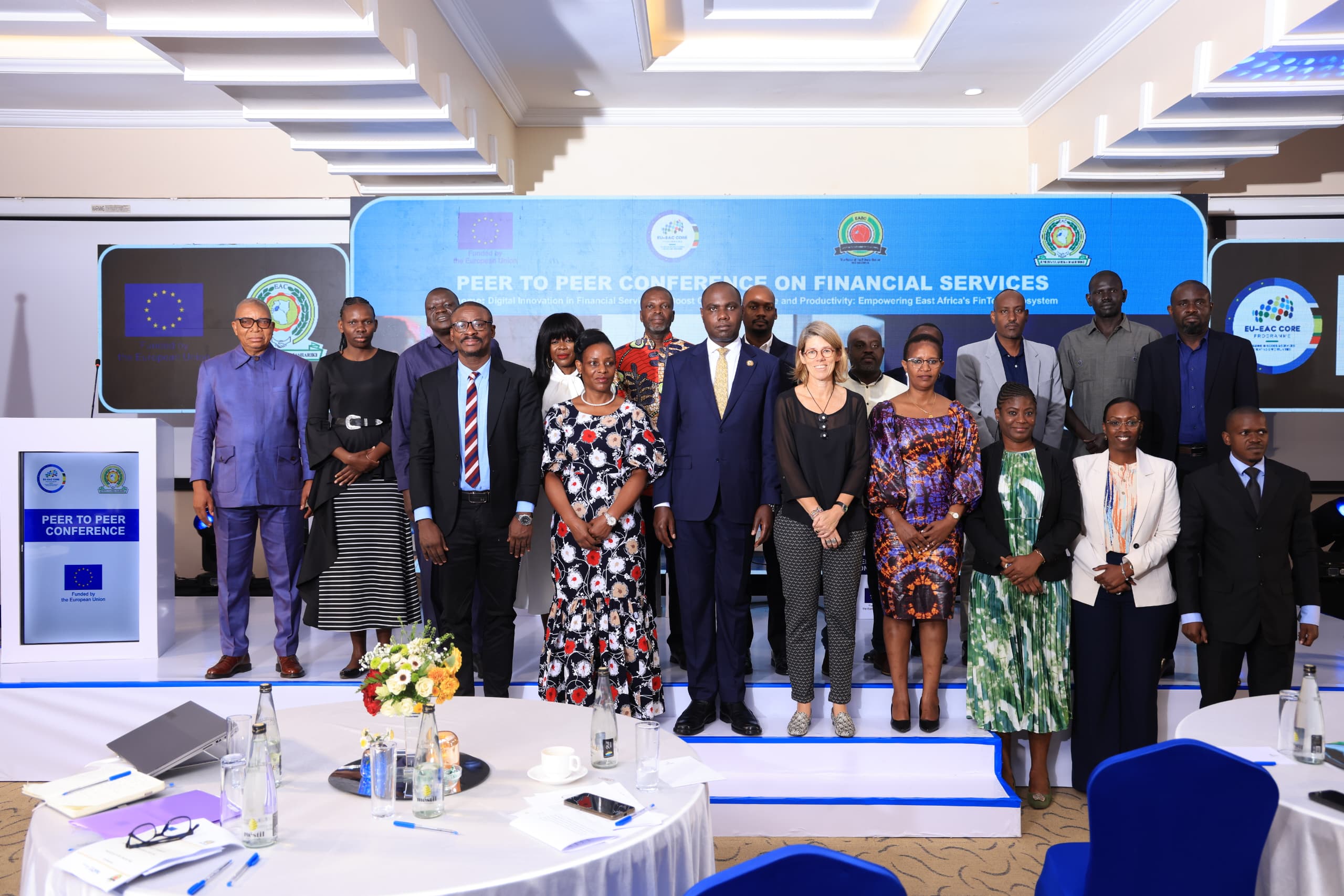KAMPALA, UGANDA – June 10, 2025 – The East African Business Council (EABC), in collaboration with the East African Community (EAC) Secretariat and the EU-EAC CORE Programme, hosted the 2nd Peer-to-Peer Learning Conference on the Financial Sector today in Kampala. Themed “Digital Innovation in Financial Services to Boost Cross-Border Trade and Productivity: Empowering East Africa’s FinTech,” the conference convened stakeholders to advance financial integration across the EAC.
Key delegates included Hon. Henry Musasizi, Uganda’s State Minister for Finance, Planning, and Economic Development, Ms. Annettee Mutaawe Ssemuwemba, Deputy Secretary General (Customs, Trade & Monetary Affairs) of the EAC Secretariat, Ms. Flavia Businge, EAC Director of Customs, Madame Sanne Williams, Head of EU Delegation to Uganda, and Ms. Staicy Waga-la, Team Leader of the EU-EAC CORE Programme. The event gathered regulators, policymakers, bankers, insurers, fintech innovators, investors, and representatives from capital markets and pension sectors.
Hon. Henry Musasizi officially opened the conference urging EAC Partner States to harmonize regulatory frameworks across the region to enable Fintech firms to unlock the full potential and opportunities presented by regional integration..
In his remarks, Mr. Adrian Rahael Njau, Acting Executive Director of EABC, highlighted that digital financial services, particularly fintech, empower MSMEs, women, and youth through tools like digital wallets, microinsurance, and digital credit, enabling unbanked populations to participate in regional trade. Innovations in mobile payment and digital identification systems enhance productivity and interoperability, while fintech startups fuel entrepreneurship and job creation.
He commended EAC governments for adopting regulatory sandboxes to test fintech solutions in a controlled environment while managing potential risks.
Mr. Njau stated challenges such as policy fragmentation, weak digital infrastructure, and poor interoperability persist and called for harmonized regulations, investment in digital infrastructure, and enhanced system interoperability across EAC Partner States.
Beyond fintech, key barriers to financial sector integration include inconsistent adoption of glob-al standards (Basel III), limited digital payment interoperability, restrictive investment policies, and gaps in data privacy, cybersecurity, and digital literacy. These hinder cross-border innovation, increase transaction costs, and limit financial inclusion.
Mr. Njau recommended for an institutionalized public-private engagement framework within the financial sector. Policy formulation at national and regional levels must be guided by business realities. Evidence-based advocacy from financial service stakeholders should ensure that financial policies support innovation, inclusion, and competitiveness.
He concluded by commending the EU-EAC CORE Programme and EAC Secretariat for organ-izing the conference which aims to promote financial sector integration, reduce market barriers, support startups, attract investors, and foster cross-border collaboration and knowledge sharing.


